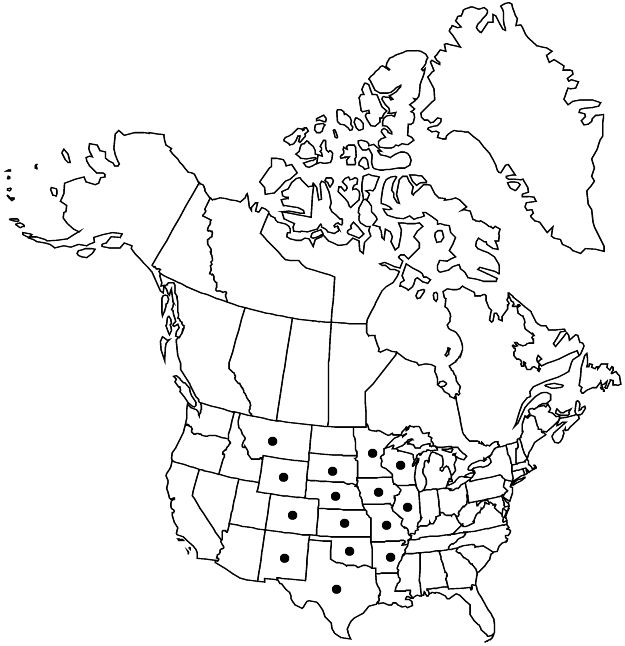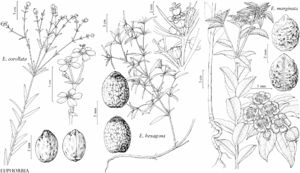Euphorbia hexagona
Syst. Veg. 3: 791. 1826.
Herbs, annual, with taproot. Stems erect, unbranched or branched, 30–70 (–100) cm, sparsely hispid, occasionally densely so at distal nodes. Leaves opposite; stipules (0–) 0.1 mm; petiole 1–4 mm, pilose; blade linear-filiform, linear, or elliptic, 21–40 × 0.9–7.5 mm, base attenuate, margins entire, apex acute, abaxial surface sparsely hispidulous to strigillose, adaxial surface glabrous; venation obscure, only midvein conspicuous. Cyathia solitary in leaf-axils or in terminal cymes or dichasia; peduncle 1–2.1 mm, strigillose. Involucre campanulate, 1–1.5 × (1–) 1.5–1.8 mm, hispid; glands 5, green to deep red, elliptic to reniform, 0.5 × 0.8–1 mm; appendages white to green, tinged red, deltate to ovate, 0.7–1.7 × (0.9–) 1.3–1.5 mm, entire. Staminate flowers 15–30 (–40). Pistillate flowers: ovary glabrous; styles 0.7–1.1 mm, 2-fid nearly entire length. Capsules subglobose to broadly ovoid, 4.7–6.5 × 4.9–6.5 (–7.1) mm, glabrous; columella 3.5–4.5 mm. Seeds dark-brown or dark gray, ovoid, 3.4 × 2.7 mm, rugose, whitish glaucous; caruncle absent.
Phenology: Flowering and fruiting late summer–fall.
Habitat: Sand prairies, other sandy soil habitats, stream banks, sand bars, damp places.
Elevation: 200–1300 m.
Distribution

Ark., Colo., Ill., Iowa, Kans., Minn., Mo., Mont., Nebr., N.Mex., Okla., S.Dak., Tex., Wis., Wyo.
Discussion
Euphorbia hexagona is native to the central United States and is most common from southern South Dakota to Oklahoma and northern Texas.
Selected References
None.
Lower Taxa
"connate" is not a number. "distinct" is not a number."entire" is not a number.
